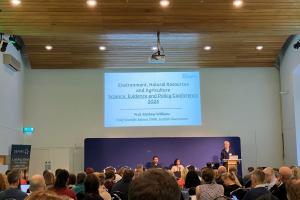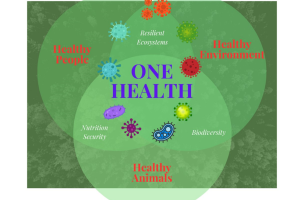
SEFARI provides the research needed to improve the efficiency and resilience of Scotland’s food production systems whilst protecting the environment and our rural communities. SEFARI works on improving our crop production systems, and reducing the impacts of plant disease. For livestock, work on animal characteristics and health and welfare leads to more efficient livestock production, which in turn reduces waste, lowers greenhouse gas emissions and improves global food security.
Sector Contact

Case Studies

Enlisting people’s help to keep our trees healthy was the task of a team representing SEFARI at the recent science showcase event UnEarthed, held at Dynamic Earth Edinburgh. The event was put on by the Natural Environment Research Council (NERC) to engage the public with environmental science through hands-on activities, and was the largest NERC showcase to date with over 7,000 people visiting between 17 – 20 November.

This week SEFARI is heading down south to London to take part in the UK's only food and drink cross-sector event, called Food Matters Live, which is taking place from 21st - 23rd November 2017 at London’s ExCeL.The free to attend event involves around 800 organisations and brings together a wide range of people and companies: food producers and retailers from small and medium enterprises to multi-nationals, UK and international-agencies; non-governmental organizations, research funders, scientists, nutritionists, students, politicians, food campaigners and chefs. Essentially, if you have even a remote interest in food there will be something there for you!

Our farmland environment is made up of a highly complex network of habitats that support an amazing diversity of plants and animals, microscopic soil organisms to farmland birds. Any changes to this intricate network of interactions can be subtle and sometimes unpredictable, so it is important we fully understand how our environment is changing over time.

Today sees the launch of SEFARI – ushering in a new era of collaboration between six of Scotland’s leading Research Institutes – each with their own capabilities and global reputation.
Pagination
Blog

Digging into the Problem: AMR in Agricultural Ecosystems
The use of antimicrobials in livestock farming has proven essential for maintaining animal health, but are known to contain resistant bacteria due to the use of antimicrobials in livestock.

Following the success of the first ENRA Science, Evidence and Policy conference last year, the conference returned this year to provide a forum to discuss key cross cutting strategic issues affecting Scotland’s environment




